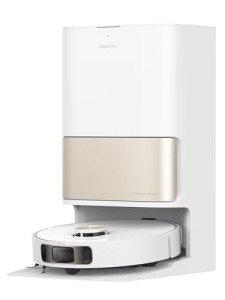Understanding Robot Vacuum Cleaner Prices: A Comprehensive Guide
In recent years, robot vacuum cleaners have actually transformed the method people clean their homes. Their ease of use, benefit, and advanced innovation have actually made them progressively popular. Nevertheless, with a myriad of designs and features offered, prospective buyers typically find themselves asking a sixty-four-thousand-dollar question: What should I anticipate to pay for a robot vacuum cleaner? This article aims to clarify the costs connected with robot vacuum, factors that affect their rates, and suggestions for discovering the right gadget for your budget.
The Price Range of Robot Vacuum Cleaners
Robot vacuum can vary commonly in price. Here, we break down the typical price range for various categories:
| Category | Price Range | Description |
|---|---|---|
| Entry-Level | ₤ 100 - ₤ 250 | Standard functions, ideal for little areas, very little smart technology. |
| Mid-Range | ₤ 250 - ₤ 500 | Enhanced cleaning abilities, better navigation, some smart functions. |
| High-End | ₤ 500 - ₤ 1,000+ | Advanced mapping, powerful suction, web connection, and app combination. |
Entry-Level Models
Low-cost robot vacuums are perfect for those who need a fundamental cleaning tool without high-end functions. They typically deal with hard floors well but may struggle with carpets and are usually less resilient.
Mid-Range Models
These vacuums frequently come equipped with better suction power and more intelligent navigation systems, making them appropriate for larger homes with mixed floor covering. Numerous models in this variety deal Wi-Fi connection and smart device control.
High-End Models
High-end robot vacuums are developed for severe cleaning enthusiasts. They generally provide advanced mapping technology, powerful suction, and built-in cams for enhanced navigation. Furthermore, numerous high-end designs allow for vacuuming on a schedule and even have the ability to clear their dust bins immediately.
Elements Affecting Robot Vacuum Prices
Comprehending the elements that can affect the price of a robot vacuum can assist consumers make more educated purchasing decisions. The following list outlines some essential functions that can impact price:
- Brand Reputation: Established brands generally carry a greater cost due to their reputation and reliable consumer support.
Cleaning Technology:
- Suction Power: More effective designs will be more costly.
- Navigation Systems: Advanced models with much better challenge detection and mapping capabilities cost more.
- Smart Features: Models that use connectivity to apps, voice control compatibility, and advanced scheduling options tend to be priced greater.
- Battery Life: Longer-lasting batteries usually lead to a higher price, as they enable the vacuum to tidy larger areas without requiring to recharge.
- Dustbin Size: Larger dustbins can be more hassle-free for customers, promoting a greater price point.
- Extra Features: Some vacuums use mopping capabilities, self-cleaning functions, and high-efficiency filters, which can increase their price.
Budget vs. Features: What to Consider
When buying a robot vacuum, it's important to weigh your budget against the features you most desire. Here are numerous considerations to help you make an informed choice:
1. Evaluate Your Home's Needs
- Size of Space: Larger homes may gain from advanced vacuums that can cover more ground without frequent recharging.
- Floor Types: If your home includes a mix of carpet and difficult floors, select a vacuum designed for both.
2. Determine Desired Features
- Decide which functions are essential for you, such as scheduling, app connection, and cleaning modes.
3. Price vs. Durability
- While a higher financial investment can yield longer-lasting models, it's worth considering lower-cost options if you're unpredictable about long-term use.
Often Asked Questions (FAQs)
Q1: Are robot vacuums worth the investment?
A1: If you lead a busy way of life or have mobility concerns, a robot vacuum can conserve substantial time and effort in cleaning, making them a worthwhile investment.
Q2: How typically should I replace a robot vacuum?
A2: Depending on the model and usage, a robot vacuum generally lasts in between 3 to 5 years. High-end designs may last longer with appropriate maintenance.
Q3: Can a robot vacuum entirely replace a traditional vacuum?
A3: While robot vacuums effectively handle everyday cleaning, they might not change traditional vacuums for deep cleaning, particularly in multi-level homes or locations requiring substantial care.
Q4: What is the typical life-span of a robot vacuum?
A4: The lifespan of robot vacuums varies by design, but most last in between 3-5 years with routine maintenance, like dustbin emptying and filter changes.
Q5: Do robot vacuums deal with carpets?
A5: Yes, however the effectiveness will depend on the design. Higher-priced models typically have better suction power to tidy carpets efficiently.
The marketplace for robot vacuum varies, with models to fit various spending plans and cleaning needs. Whether robotic vacuum cleaners are trying to find a basic cleaning tool or a sophisticated device geared up with various smart functions, comprehending the price ranges and aspects affecting expenses is crucial. With cautious consideration of individual requirements and monetary constraints, possible purchasers can find a robot vacuum that will improve their cleaning routine and provide long-lasting complete satisfaction.

